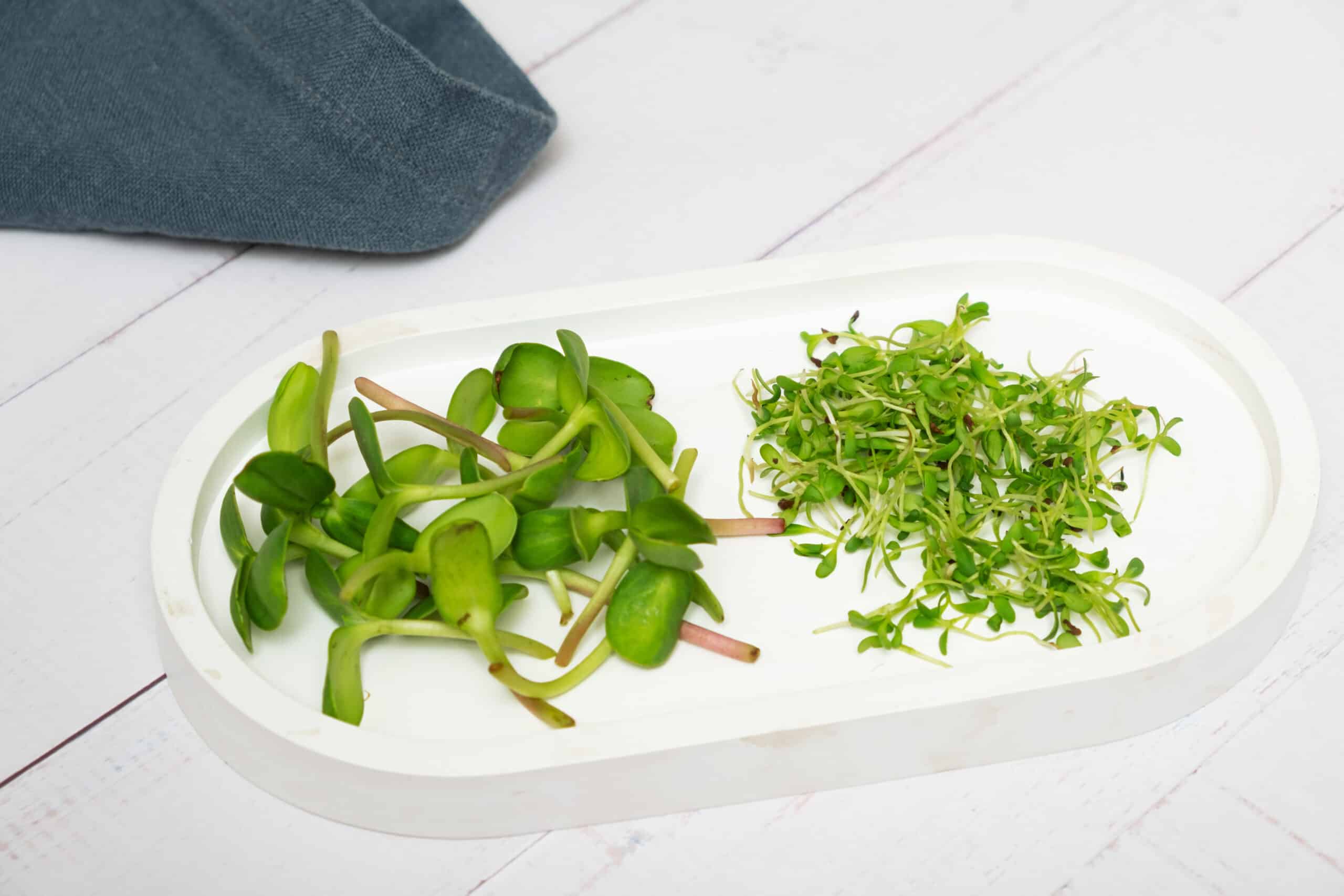Do Microgreens Help You Poop?
Key Takeaways
- Microgreens are packed with nutrients and can contribute to better digestion and healthy bowel movements.
- The dietary fiber in microgreens adds bulk to the stool and promotes regular bowel movements, preventing constipation.
- The antioxidants and phytochemicals in microgreens reduce inflammation, support gut health, and aid in liver function, indirectly improving bowel movements.
Microgreens are young vegetable greens that are harvested just a few weeks after germination. They are packed with nutrients and have gained popularity in recent years due to their health benefits. One common question that people often ask is whether microgreens can help with digestion and promote healthy bowel movements. In this article, we will explore the potential of microgreens in aiding digestion and answer the question: do microgreens help you poop?
The Role of Microgreens in Digestion
Microgreens are known for their high nutrient content, including dietary fiber, antioxidants, and beneficial phytochemicals. These components play a vital role in supporting digestion and overall gut health.
Dietary Fiber
Dietary fiber is essential for maintaining a healthy digestive system. It adds bulk to the stool, promotes regular bowel movements, and prevents constipation. Microgreens, such as radish and mustard, contain significant amounts of dietary fiber, making them a great addition to your diet if you are looking to improve your digestive health.
According to an article by Microgreens World, the fiber content in microgreens can help bulk the stool and facilitate smooth digestion. Including microgreens in your daily diet can provide the necessary fiber to support healthy bowel movements.
Antioxidants
Microgreens are rich in antioxidants, which have anti-inflammatory properties. Inflammation in the gut can lead to various digestive issues, including bloating, gas, and discomfort. By reducing inflammation, microgreens can contribute to better digestive health.
A study published in the journal Pharmacognosy Reviews highlighted the role of antioxidants in reducing inflammation and improving gut health. The antioxidants present in microgreens help protect the gut lining and promote a healthy gut microbiome, which is crucial for proper digestion.
Phytochemicals
Microgreens are also packed with beneficial phytochemicals, such as chlorophyll. These phytochemicals have been found to support liver function and aid in detoxification processes. A healthy liver is essential for proper digestion and elimination of waste products from the body.
According to Microgreens World, the phytochemicals found in microgreens contribute significantly to digestive health. Chlorophyll, specifically, has been shown to support liver detoxification, which can indirectly improve bowel movements.
Conclusion
Based on the available information, microgreens can indeed help with digestion and promote healthy bowel movements. The dietary fiber in microgreens adds bulk to the stool and facilitates smooth digestion, reducing the risk of constipation. The antioxidants and phytochemicals present in microgreens also contribute to gut health by reducing inflammation and supporting liver function.
If you are looking to improve your digestive health, incorporating microgreens into your diet can be a beneficial choice. They are easy to grow at home or can be found in grocery stores and farmers markets.
Related Websites:
FAQs:
Q: What are microgreens?
Microgreens are young vegetable greens that are harvested after the cotyledon leaves have developed and are larger than sprouts but smaller than baby greens. They are packed with nutrients and have gained popularity as a nutritious food choice.
Q: How do microgreens differ from sprouts or baby greens?
Microgreens differ from sprouts as they are harvested after the cotyledon leaves have developed. Unlike baby greens, microgreens are harvested at an earlier stage of growth. They are more nutrient-dense than sprouts and have a more intense flavor compared to baby greens.
Q: Do microgreens help with digestion?
Microgreens can aid digestion due to their high fiber content. Fiber adds bulk to stool, helping it move through the intestines more easily. Additionally, microgreens contain nutrients like vitamins A, C, and K, which support a healthy gut environment. Nevertheless, individual experiences may vary.
Q: What are the benefits of incorporating microgreens into my diet?
Incorporating microgreens into your diet can provide various benefits. They are rich in vitamins, minerals, and fiber, which support overall health and digestion. Microgreens also add flavor and texture to meals and can be easily incorporated into salads, sandwiches, or smoothies. Remember to maintain a balanced diet for optimal digestive health.
Q: Is there any scientific research on the effects of microgreens on digestion?
Scientific studies have explored the effects of microgreens on digestion. While more research is needed, some studies suggest that microgreens may have positive effects on digestion and bowel movements due to their fiber and nutrient content. However, individual responses may vary and further research is required to establish definitive conclusions.






